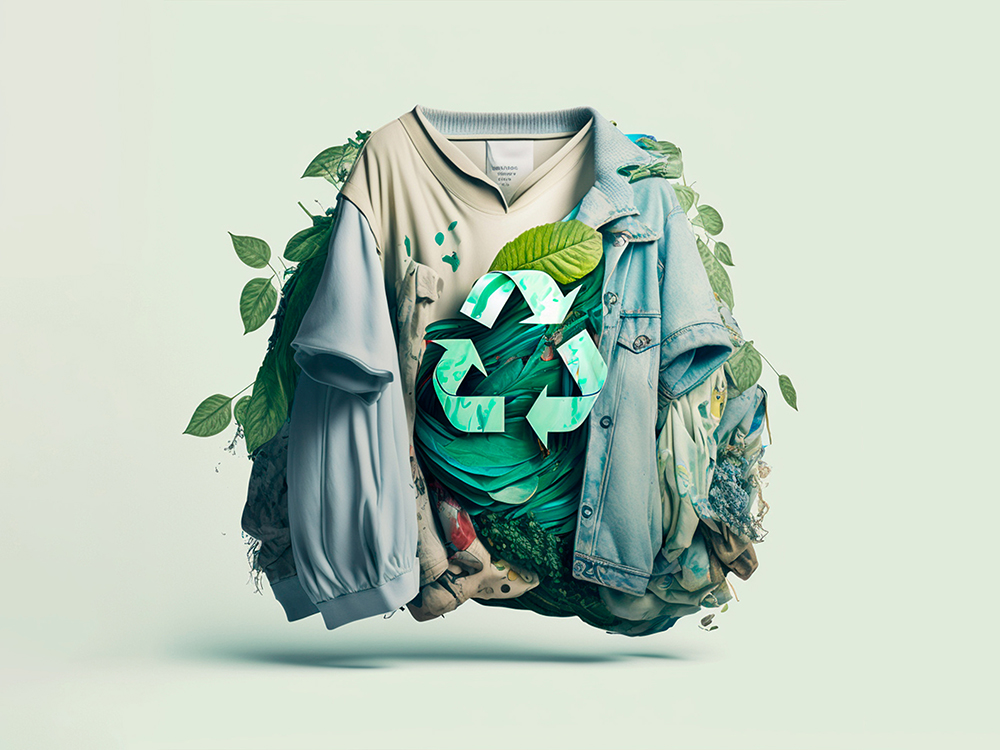The Basics of Sustainable Fashion: A Comprehensive Guide for Beginners
The Basics of Sustainable Fashion
Introduction
In recent years, a growing concern for the environment and ethical practices has given rise to a powerful movement in the fashion industry - sustainable fashion. This paradigm shift aims to transform the way we produce, consume, and perceive clothing. Sustainable fashion isn't just a trend; it's a fundamental shift in values that prioritizes eco-friendly materials, ethical production methods, and responsible consumption. In this comprehensive guide, we will introduce you to the essential principles of sustainable fashion, equipping you with the knowledge to embrace a more conscious approach to style.
The Principles of Sustainable Fashion
1. Eco-Friendly Materials in sustainable fashion
The foundation of sustainable fashion lies in the materials used to create clothing. Unlike conventional fashion, which often relies on resource-intensive and polluting materials, sustainable fashion focuses on eco-friendly alternatives. These materials are sourced responsibly and have a lower environmental impact. Examples of sustainable textiles include organic cotton, which is grown without harmful pesticides, and Tencel, a fiber made from sustainably sourced wood pulp. Other innovative options include bamboo, hemp, and recycled fabrics, all contributing to a reduced carbon footprint and a healthier planet.
2. Ethical Production in sustainable fashion
Sustainable fashion emphasizes fair labor practices and safe working conditions for garment workers. Ethical production entails paying workers fair wages, providing secure workspaces, and ensuring that laborers are treated with dignity and respect. Sustainable brands often prioritize transparency, allowing consumers to trace the journey of their clothes from raw materials to the finished product. By supporting ethically produced fashion, consumers can help combat exploitative practices and promote social justice within the industry.
3. Responsible Consumption
Responsible consumption involves making mindful choices as consumers. It encourages us to buy less, buy better quality, and extend the lifecycle of our clothing. One of the fundamental principles of sustainable fashion is to move away from the "fast fashion" mindset, which promotes cheap, disposable clothing. Instead, we should invest in timeless, durable pieces that can be worn for years, reducing the overall demand for new clothing and its associated environmental impacts. Additionally, embracing second-hand shopping and clothing swaps can further decrease our fashion footprint.
Conclusion
As we journey towards a more sustainable future, adopting the principles of sustainable fashion is an important step that each one of us can take. By choosing eco-friendly materials, we help conserve precious resources and reduce pollution. Supporting ethical production ensures that garment workers are treated fairly and work in safe conditions. Responsible consumption empowers us to make conscious decisions about the clothing we buy and how we use it.
Through sustainable fashion, we can redefine our relationship with clothing, transforming it from a disposable commodity into a means of expressing values and contributing to positive change. As beginners on this journey, let's educate ourselves about the brands we choose, their sourcing and manufacturing practices, and the materials they use. By supporting sustainable fashion, we become part of a powerful movement that not only benefits the environment but also fosters a more equitable and compassionate fashion industry.
So, as you contemplate your next fashion purchase, consider the impact it can have. Embrace the beauty of sustainable fashion and be a force for good in the world, one stylish step at a time. Together, we can shape a fashion industry that respects our planet and the people who bring our clothing to life.

Comments
Post a Comment